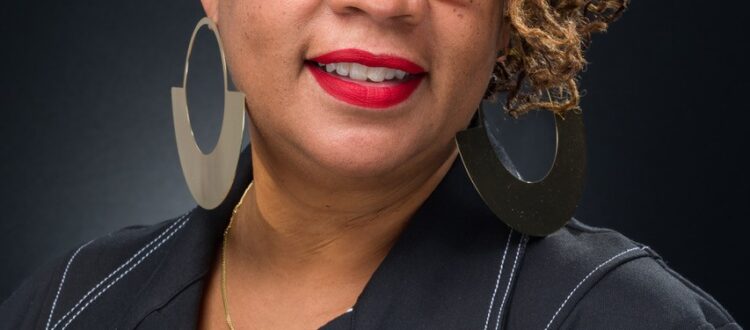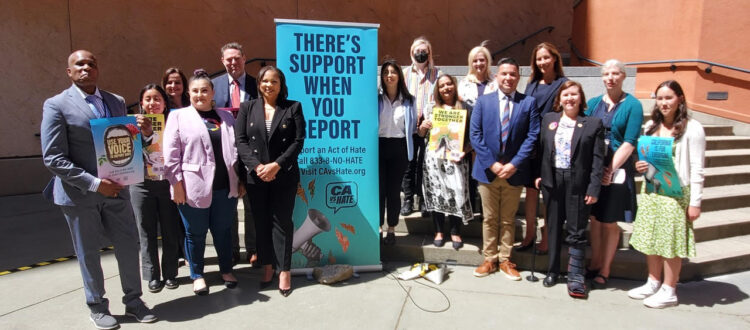Black women noted that they were even more likely to suffer from a negative interaction. A new survey has revealed that African Americans expect racist encounters while at the doctor’s office. The survey revealed other discrepancies regarding discrimination toward people of color in the health care system.
The study was conducted by KFF in its “2023 Racism, Discrimination, and Health Survey” to gain a deeper understanding of the relations between patients of varying backgrounds and their medical service providers. The survey garnered responses from almost 6,300 adult participants, which revealed that patients of color were more likely to note unfavorable experiences with their doctors during appointments.
“Things like a provider not listening to them, not answering a question or responding to a direct request, not prescribing pain medication that they thought they needed,” said KFF’s director of Racial Equity and Health Policy, Samantha Artiga.
According to the findings, 1 in 5 respondents reported unfair treatment or disrespect from a medical professional, with Black women more likely to have a negative interaction. Nearly a quarter of all the Black participants shared that they had a racist interaction within the past three years.
Not only are they more likely to experience such encounters, but they also expect to. The survey also found that 60% of Black adults “prepare for possible insults” from the providers as well as medical staff. Due to this expectation, they revealed that they were likely to uphold a standard of appearance in an attempt to avoid this issue. The survey also noted the importance of having diverse medical providers to combat this issue, as surveyors with doctors of the same racial background reported having more positive experiences at their appointments.
Representation in the medical field is still an ongoing problem, but patients of color are suffering the most from this deficit. The survey noted that remedying this problem by growing the number of providers of color, in addition to provide resources and initiatives to combat bias in health care, is key for Black patients and others to receive the proper medical care.
Here are the key takeaways from the survey:
Reflecting ongoing residential segregation patterns rooted in contemporary and historic policies, Hispanic, Black, Asian, and AIAN adults feel less safe in their homes and neighborhoods and experience higher rates of police mistreatment compared to White adults. Hispanic, Black, Asian, and American Indian and Alaska Native (AIAN) adults are significantly less likely than White adults to say they feel “very safe” in their neighborhoods and in their homes, and about one in ten in each of these groups say they or a family member was a victim of violence in the past year, about twice the share of White adults who say so. About one in six AIAN adults and one in ten Black and Hispanic adults say they or a family member living with them have been threatened or mistreated by the police in the past year compared with 4% of White adults. Black and Hispanic adults who have self-reported darker skin tones report even higher rates of police mistreatment. Hispanic, Black, and AIAN adults also report disproportionate challenges with finances and employment due to underlying structural inequities, which are reflected in their daily worries and concerns. Among adults overall and across most racial and ethnic groups, having a strong network of local support is associated with increased feelings of safety in their homes and neighborhoods and reduced frequency of worries and concerns about meeting their family’s basic needs and health.
At least half of AIAN, Black, and Hispanic adults and about four in ten Asian adults say they have experienced at least one type of discrimination in daily life at least a few times in the past year, and they are more likely to say these experiences were due to their race or ethnicity compared to their White counterparts. These experiences include receiving poorer service than others at restaurants or stores, people acting as if they are afraid of them, people acting as if they are not smart, being threatened or harassed, or being criticized for speaking a language other than English. Overall, four in ten Black adults and about three in ten Hispanic, Asian, and AIAN adults say they have experienced at least one of these acts of discrimination in the past year and that their race or ethnicity was a reason for these experiences compared with just 6% of White adults.
Highlighting the impacts of racism and discrimination on well-being and health, people who report experiences with discrimination in daily life are more likely than those who rarely or never experience discrimination to report adverse effects from worry or stress as well as regular feelings of loneliness, anxiety and depression. For example, those who experienced discrimination in their everyday lives are at least twice as likely as those who report rarely or never experiencing discrimination to say that in the past 30 days worry or stress has led to sleep problems (65% vs. 35%); poor appetite or overeating (52% vs. 20%) frequent headaches or stomachaches (41% vs. 15%); difficulty controlling their temper (34% vs. 11%); worsening of chronic conditions (19% vs. 9%); or an increase in their alcohol or drug use (19% vs. 6%). Similarly, those who have experienced discrimination are more likely than those who haven’t had these experiences to say they always or often felt anxious, lonely, or depressed in the past year. These patterns are similar across racial and ethnic groups and persist even when controlling for other factors like age, income, gender, and LGBT identity.
Black and AIAN adults report facing particularly high rates of discrimination, and among Black adults, those with self-reported darker skin tones are more likely to report discrimination experiences than those with lighter skin tones. AIAN and Black adults are the most likely to report an experience with discrimination in daily life asked about in the survey, with over half of both groups saying they experienced at least one of these types of discrimination at least a few times a year and about three in ten reporting experiencing two or more of these types of discrimination at least a few times a year. Among Black adults, those who say their skin color is “very dark,” “dark,” (62%) or “medium” (55%) are more likely to report an experience with discrimination compared with 42% of Black adults who say their skin color is “very light” or “light.”
Specific discrimination experiences also vary by gender, with Black men being the most likely to say people act as if they are afraid of them and Hispanic women most likely to say they are treated as if they are not smart. About a quarter (27%) of Black men say people acted afraid of them in the past year, as do 17% of Hispanic men and 17% of Black women, compared with about one in ten among Hispanic women and White and Asian adults of either gender.
Conversely, the share who say they were treated as if they are not smart is higher among Hispanic women (37%) than Hispanic men (27%). Hispanic women are also more likely than Hispanic men to say they received poorer service than others in stores or restaurants at least a few times in the past year (29% vs. 21%). Discrimination experiences also vary by LGBT identity and age. About two-thirds (65%) of LGBT adults say they experienced at least one form of discrimination measured in the survey in the past year compared to four in ten (40%) non-LGBT adults, although there are no significant differences by race and ethnicity among LGBT adults. Similarly, over half (54%) of adults ages 18-49 report these experiences compared to three in ten (29%) of those ages 50 and over.
Experiences with unfair treatment extend into health care, with Black, Hispanic, AIAN, and Asian adults reporting higher levels of unfair treatment when seeking health care than their White counterparts, and Black women report even higher rates of unfair treatment. About one in five Black adults (18%) and about one in ten Hispanic (11%), Asian (10%) and AIAN (12%) adults say they have been treated unfairly or with disrespect by a health care provider in the past three years because of their race or ethnic background compared with 3% of White adults. Among Black adults, women are more likely than men to say they were treated unfairly by a health care provider because of their racial or ethnic background (21% vs. 13%).
Reflecting experiences with unfair treatment, large shares of Black, AIAN, Hispanic, and Asian adults say they prepare for possible insults or feel they must be very careful about their appearance to be treated fairly during health care visits. Six in ten (60%) Black adults, about half of AIAN (52%) and Hispanic (51%) adults, and four in ten (42%) Asian adults say they prepare for possible insults from providers or staff and/or feel they must be very careful about their appearance to be treated fairly during health care visits at least some of the time compared with one in three (33%) White adults.
Having providers with a shared background matters, as Black, Hispanic, and Asian adults who have more health care visits with providers who share their racial and ethnic background report more frequent positive and respectful interactions. Reflecting limited racial and ethnic diversity of the health care workforce, most Hispanic, Black, Asian, and AIAN adults say that fewer than half of their health care visits in the past three years were with a provider who shared their racial or ethnic background. However, the survey shows how provider racial and ethnic concordance can make a difference in patient interactions. For example, Black adults who had at least half of recent visits with a provider who shares their background are more likely than those who have fewer of these visits to say that their doctor explained things in a way they could understand (90% vs. 85%), involved them in decision-making about their care (84% vs. 73%), understood and respected their cultural values or beliefs (84% vs. 76%), or asked them about social and economic factors (39% vs. 24%) during recent visits.
A third of adults overall report at least one of several negative experiences with a health care provider in the past three years, and many Black, Hispanic, Asian, and AIAN adults say they were treated this way because of their race or ethnicity. These negative experiences include a provider assuming something about them without asking, suggesting they were personally to blame for a health problem, ignoring a direct request or question, or refusing to prescribe pain medication they thought they needed. About a quarter (24%) of Black adults and one in five (19%) AIAN adults say they experienced at least one of these negative experiences and that their race or ethnicity was a reason why they were treated this way, as do 15% of Hispanic and 11% of Asian adults, compared with just 4% of White adults. Notably, 22% of Black adults who were pregnant or gave birth in the past ten years say they were refused pain medication they thought they needed, roughly twice the share of White adults with a pregnancy or birth experience (10%).
Negative experiences with health care providers as well as language access challenges have consequences for health and health care use. Among adults who used health care in the past three years, one in four (25%) say they had a negative experience (including being treated unfairly or with disrespect, a negative provider interaction, or difficulty with language access), and it led to worse health, being less likely to seek care, and/or switching providers. AIAN and Black adults are more likely than White adults to say they had a negative experience and it contributed to at least one of these consequences.
Source: KFF.org











